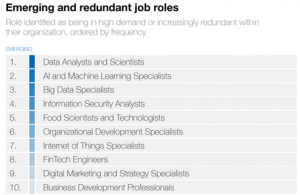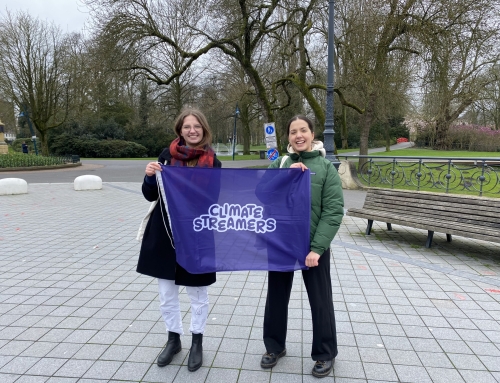What does it mean to create impact? During my time at Performatory, I have done many projects. From creating a podcast to connecting a community for a start-up, I have gained a lot of experience within all of these initiatives. One aspect that connects all of them is that I was always searching for the deeper meaning of the projects. Why are we doing this? What do we want to achieve? Why should we care? Or in other words, what is the impact that we want to create?
Impact
In modern society, societal impact is an aspect that most organisations need to address. According to Kroese (2015), there are three reasons why you should measure impact within an organisation. The first reason is that you need to know what you are aiming to achieve, in order to know in which areas you need to improve. The second reason is to be able to substantiate your claims to important stakeholders. Finally, impact measurement contributes to the motivation of employees when they really see that there is an impact – that what they do actually benefits the world.
Personally, I like to define impact of an organisation by relating it to their mission and vision. A mission defines the purpose, standards and behaviours, strategy, and values of an organisation, while the vision defines your priorities, plans, and goals for the future (Cortés-Sánchez, 2017). The mission explains how you are going to achieve the vision. The impact that the organisation makes is the success they have in achieving their vision with their mission.
My interest in creating impact, is to understand whether or not an organisation or a community is actually achieving what they set out to do. I think it is interesting to deconstruct the mission of an organisation, in order to find out if the vision has been accurately translated into the physical world. With that knowledge, new actions can be constructed to come closer to achieving the desired impact.
The Influence of Technology in Education
Another one of my interests is technological. To name a few examples how this interest influenced me as a student, I have learned audio editing skills as a result of creating podcasts during several projects within Performatory. I have created an online interactive system map that visualises how to improve the quality and quantity of ambulatory healthcare in the Netherlands. Moreover, I designed a brand book and marketing plan for a start-up company in order for them to reach their target group. I like to keep up to date on current technological developments, as I am fascinated with the rapid changes that technology adds to society.
In the future of our society the adoption and integration of technology will become more prevalent in multiple sectors. A study done by the World Economic Forum (Zahidi et al., 2020) shows that most emerging jobs requires a technological skillset. Therefore, the development, adoption and integration of technological skills is an important aspect of people’s ability to find work and will likely become more prevalent in multiple sectors. In the figure 1 below you can see the emerging jobs in The Netherlands. What this figure indicates is that people stand to benefit from being trained in emerging technologies from a young age.

Figure 1: Ranking of emerging and increasingly redundant jobs in the Netherlands (Zahidi et al., 2020)
Many employers now expect job applicants to have digital skills. Even for non-technical roles in jobs in health and social care or sales, employers expect prospective employees to be computer literate and have a good handle on office software (Zahidi et al., 2020). For the workforce of today, this means that they will need to be trained or re-educated to acquire this new skillset. What a lot of employees have been educated for, will now need to be redefined in this new technological landscape. Although not all future jobs are directly in the technological sector, most require an understanding of how a certain technology is integrated. Therefore, impact can be created giving young people the opportunity to discover and acquire digital skills, will result in supporting organisations in the future find the employees they need and to help people find work, lowering unemployment. Without this impact creation, people would need to re-educate themselves after basic formal education in order to partake in the future work environment.
What this means is that the youth of today has to be educated in work in this ever-changing technological landscape. Effective policies are required to ensure that new technologies have a positive impact on youth employment, and failure to act would mean growing numbers of discouraged young people in many countries, ultimately undermining the socio-economic development of these countries (“International Labour Office”, 2020). If we do not change our approach to education, the future generation will also need to re-educate themselves in order to partake in the future work environment. Making a transformative change in the way we approach technology in our education will prepare the children of today for the jobs of tomorrow.
I want to explore what I can do as a social innovator in order to address the changing technological landscape, in order to create meaningful desired impact for the youth of today. What that is exactly, I do not know. But I know that I want to help to prepare the future generation so that they have the skills necessary to partake in the work environment of the future. In my next blog, I will elaborate on the organisation De Uitvindfabriek where I have decided to develop myself with this learning goal in mind.
References
Cortés-Sánchez, J. (2017). Mission and vision statements of universities worldwide: a content analysis. Documentos De Investigación, Facultad de Administración, (152), 2463-1892.
International Labour Office. (2020). Global employment trends for youth 2020: Technology and the future of jobs. International Labour Organisation (ILO).
Kroese, E. (2015). Impact First – Waarom meten moet, en hoe je dat doet. https://www.social-enterprise.nl/application/files/5215/5006/6796/Impact_First_longread-definitief-bijgewerkte_afbeelding.pdf
Zahidi, S., Ratcheva, V., Hingel, G., & Brown, S. (2020, October). The Future of Jobs Report 2020. World economic forum. Retrieved February 4, 2022, from https://www3.weforum.org/docs/WEF_Future_of_Jobs_2020.pdf





